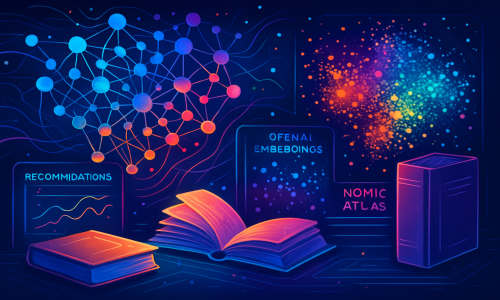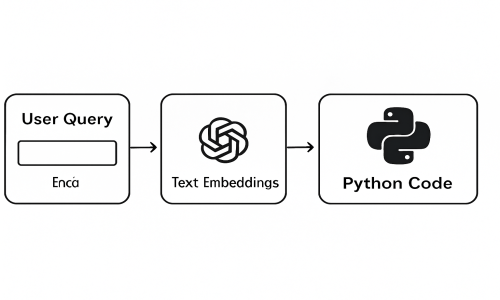📚 Book Recommendation System Using OpenAI Embeddings And Nomic Atlas Visualization
We’ll build a semantic book recommendation system powered by OpenAI text embeddings, and visualize the results using Nomic Atlas — a powerful tool for interactive visualization of high-dimensional data.
We'll walk through:
-
Preparing the dataset (📁 from Kaggle)
-
Generating embeddings with OpenAI API
-
Performing semantic search using cosine similarity
-
Visualizing book relationships using Nomic Atlas
📥 Step 1: Download the Dataset
We’ll use the Goodreads Books dataset available on Kaggle:
👉 Download from Kaggle
Once downloaded, load it into a pandas DataFrame:
🧠 Step 2: Estimate Embedding Token Cost
Before generating embeddings, it’s good to estimate token usage and cost:
-
This uses OpenAI's
text-embedding-ada-002which costs $0.0004 per 1K tokens.
🤖 Step 3: Generate Embeddings Using OpenAI
Set up OpenAI's new SDK interface:
Apply it to your DataFrame and save the results:
🔁 Step 4: Load Embeddings for Recommendation
🎯 Step 5: Recommend Books Using Cosine Similarity
Define cosine similarity and a recommendation function:
🔍 Example:
🌍 Step 6: Visualize Embeddings with Nomic Atlas
Install Nomic:
Prepare the data and embeddings for visualization:
Now send it to Atlas:
After a few moments, Atlas will give you a link to explore your interactive book map — similar books will cluster together!
📌 What You’ve Built
✔ A semantic book search that understands meaning, not just keywords
✔ Recommender system using OpenAI embeddings
✔ Interactive map of books using Nomic Atlas
✔ End-to-end pipeline from dataset → embeddings → visualization
💡 Final Thoughts
Semantic search opens up new ways to explore data. With just a few tools:
-
OpenAI for embeddings
-
NumPy for math
-
Pandas for data handling
-
Nomic Atlas for beautiful visualization
…you can build real-world AI systems in just a few lines of code.
🔗 Resources






